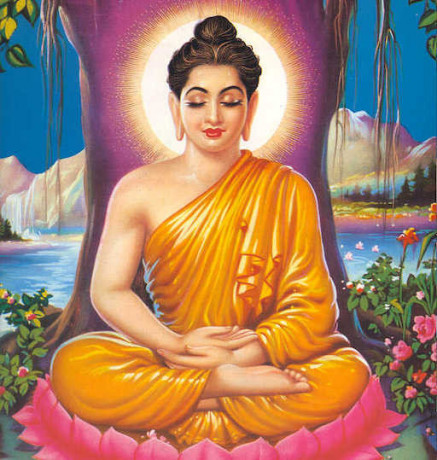Gautam Buddha: The Enlightened One Who Shaped a Spiritual Legacy" Professional
Nov 19th, 2023 at 07:30 Blogs Kathmandu 243 views Reference: 1003Location: Kathmandu
Price: Contact us
Introduction:
In the annals of history, one name stands out as a beacon of enlightenment and compassion—Gautam Buddha. Born in the sixth century BCE in Lumbini, now in modern-day Nepal, Siddhartha Gautama, later known as the Buddha, embarked on a profound journey that would reshape the spiritual landscape of the world. This article delves into the life, teachings, and enduring legacy of Gautam Buddha.
Early Life:
Siddhartha Gautama was born into the Shakya clan, a warrior caste, in the foothills of the Himalayas. His father, King Suddhodana, shielded him from the harsh realities of life, providing a sheltered and opulent existence within the palace walls. However, an encounter with the realities of aging, sickness, and death prompted the young prince to seek a deeper understanding of existence.
The Great Renunciation:
In an act of renunciation, Siddhartha Gautama left behind his princely life, donned the robes of a wandering ascetic, and set out on a quest for spiritual truth. For six years, he practiced severe asceticism, seeking enlightenment through extreme practices. Unsatisfied with this approach, he embraced a middle path—rejecting both self-indulgence and self-mortification—as the way to attain enlightenment.
The Enlightenment Under the Bodhi Tree:
Siddhartha Gautama's quest culminated in a momentous night beneath the Bodhi Tree in Bodh Gaya. It was here that he attained enlightenment, becoming the Buddha, which translates to "the enlightened one." He gained insights into the nature of suffering, the causes of suffering, and the path to liberation from suffering, known as the Four Noble Truths and the Eightfold Path.
Teachings of Gautam Buddha:
The core teachings of Gautam Buddha revolve around the Four Noble Truths:
- Dukkha (Suffering): Life is inherently marked by suffering, dissatisfaction, and impermanence.
- Samudaya (Origin of Suffering): The cause of suffering is craving and attachment, leading to the cycle of birth, death, and rebirth (samsara).
- Nirodha (Cessation of Suffering): Liberation from suffering is attainable through the cessation of craving and the attainment of Nirvana.
- Magga (Path to the Cessation of Suffering): The Eightfold Path outlines the ethical and mental guidelines for overcoming suffering and achieving enlightenment.
The Eightfold Path comprises Right View, Right Intention, Right Speech, Right Action, Right Livelihood, Right Effort, Right Mindfulness, and Right Concentration.
Spread of Buddhism:
After attaining enlightenment, the Buddha spent the next several decades traveling and teaching. His compassionate and universal message attracted a diverse following. Monastic communities (Sangha) were established, and the Buddha's teachings were passed down orally.
Buddhism eventually spread beyond India to various parts of Asia, becoming one of the major world religions. Different traditions and schools of Buddhism emerged, each interpreting the Buddha's teachings in distinct ways.
Death and Parinirvana:
Gautam Buddha passed away at the age of 80 in Kushinagar. According to Buddhist tradition, at the moment of his death, he attained Parinirvana, the final cessation of all suffering and the complete liberation from the cycle of rebirth.
Legacy and Influence:
Gautam Buddha's legacy extends far beyond his historical lifetime. His teachings continue to inspire millions around the world, shaping diverse cultures and societies. Buddhism has left an indelible mark on art, philosophy, literature, and practices of mindfulness and meditation.
The symbolism of the Buddha's life—his journey from prince to ascetic, enlightenment under the Bodhi Tree, and compassionate teachings—resonates with people seeking meaning and purpose in their lives.
Conclusion:
Gautam Buddha's profound insights into the nature of existence and the path to liberation have transcended time and cultural boundaries. His legacy endures not only in the philosophy of Buddhism but also in the hearts and minds of those who seek wisdom, compassion, and a profound understanding of the human condition. The story of Gautam Buddha is a timeless narrative of enlightenment, compassion, and the potential for transformation within every individual.


